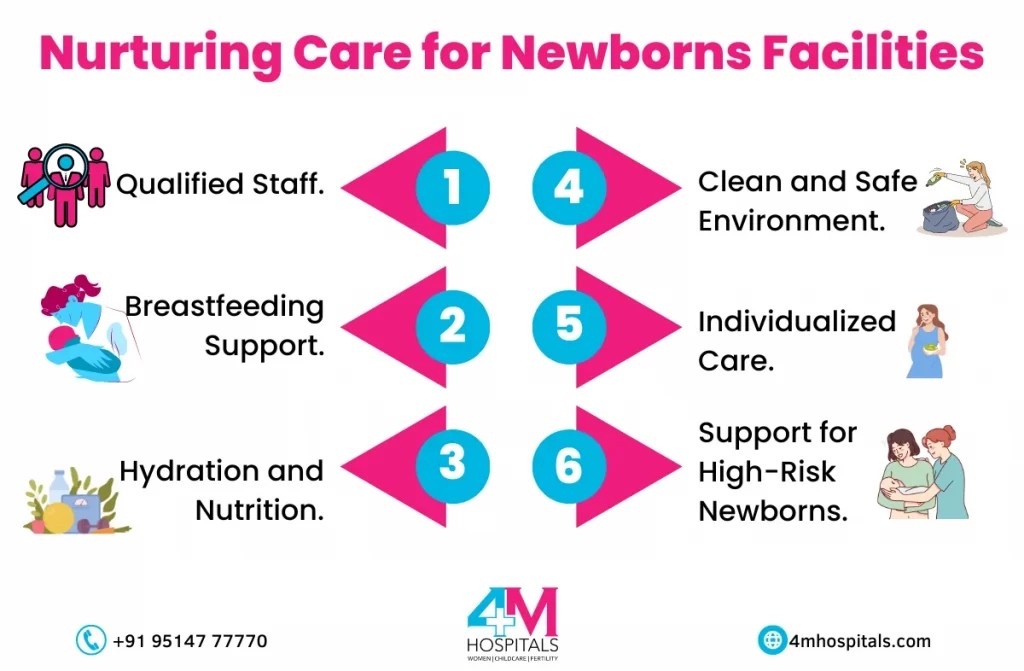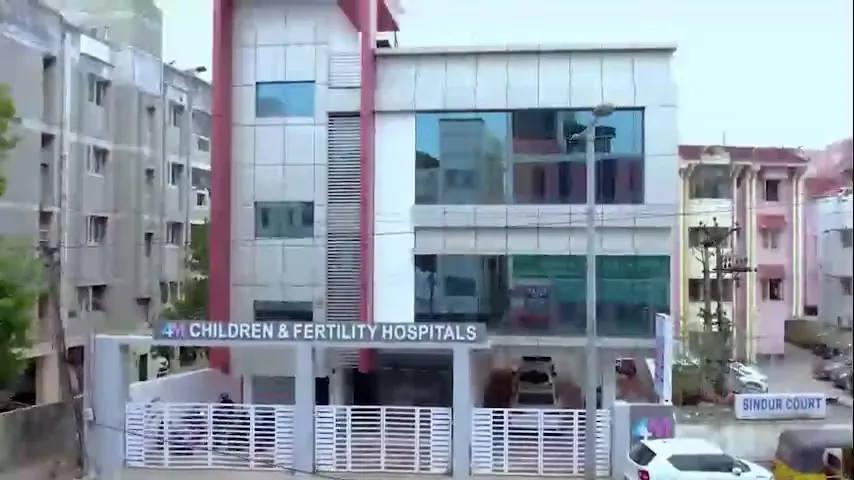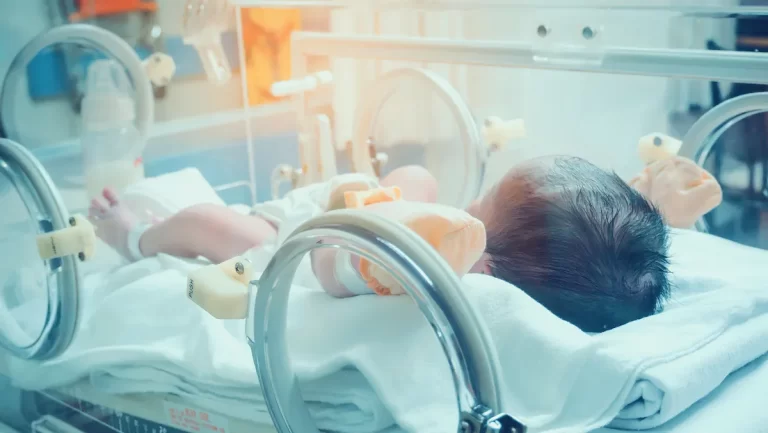When it comes to the care of infants and children with severe medical conditions, the terms NICU and PICU come up frequently. Difference between NICU and PICU provide critical care, but they cater to different age groups and medical needs. In this article, we’ll explore the distinct roles of each unit, shedding light on their operations, the type of care provided, and the circumstances under which a child would be admitted to either unit. This knowledge is crucial for parents and guardians facing the prospect of intensive care for their child.
What is the PICU?
The Pediatric Intensive Care Unit, or PICU, provides medical care to infants, children, and teenagers who suffer from a variety of serious illnesses and injuries. This includes everything from severe infections and respiratory distress to recovery following major surgery. The PICU supports patients who require constant monitoring and advanced medical interventions to manage their conditions.
Pediatric intensivists, specialized nurses, and other healthcare professionals are trained specifically to handle the complex challenges associated with treating older children. The PICU uses sophisticated equipment to monitor vital signs continuously and administer life-sustaining treatments.
Types of PICU Care
The Pediatric Intensive Care Unit (PICU) caters to a diverse group of patients, ranging from infants to teenagers, who require intensive medical intervention for a variety of serious conditions. This highlights a key aspect of the difference between NICU and PICU—the range of ages and medical complexities they manage. The following are some of the key types of care provided in the PICU:
- Invasive Ventilation and Dialysis: For children who are unable to breathe on their own or need renal support, invasive mechanical ventilation and dialysis are crucial life-support options.
- Transfusions: Blood or blood product transfusions are often necessary to manage or treat conditions resulting from trauma, surgery, or disease.
- Post-Surgical Care: Following major surgeries, specialized post-operative care is essential to monitor and support the child’s recovery, ensuring complications are managed effectively.
- Treatment of Acute Illnesses: Conditions such as pneumonia, sepsis, and seizures require aggressive and targeted treatments, which are tailored to each child’s specific needs.
- Trauma and Injury Stabilization: For children suffering from serious injuries due to accidents or trauma, immediate and comprehensive medical intervention is provided to stabilize their condition.
- Sedation and Pain Management: Effective management of pain and anxiety is critical in the PICU, involving careful administration of sedatives and pain relievers to ensure patient comfort and facilitate recovery.
- Fluid Management and Nutrition: Maintaining the right balance of fluids and providing adequate nutrition are fundamental to support the healing process and overall health of the PICU patients.
These components of care in the PICU reflect the unit’s capability to manage complex and varied medical challenges, ensuring all patients receive the highest level of pediatric care tailored to their specific needs. They further emphasize the difference between NICU and PICU, with PICU’s approach adapted for a wider age range and broader medical issues.
What Happens in the PICU?
No parent ever wishes to see their child admitted to a hospital, especially to the Pediatric Intensive Care Unit (PICU). However, understanding what happens in the PICU can help prepare families for the experience and demystify the processes involved in caring for critically ill or injured children.
- IVs & Monitors: Admission to the PICU is reserved for serious or critical conditions. Once admitted, the medical team will insert intravenous (IV) lines to deliver necessary medications and fluids directly into the bloodstream. Additionally, the child will be connected to various monitors. These monitors track vital signs like heart rate, blood pressure, and oxygen levels, allowing for continuous observation of the child’s condition.
- Medicines & Tests: The care team in the PICU conducts regular diagnostic tests to gauge the child’s health progress and determine the effectiveness of treatments. Medications may be adjusted frequently based on test results and changes in the child’s condition to tailor treatment to their specific needs.
- Extra Support: Depending on the severity of their condition, some children may require mechanical ventilation. This support is crucial for children hospital who are unable to breathe adequately on their own. Ventilators help ensure that they receive sufficient oxygen while their bodies recover or until they can breathe independently.
Additional PICU Insights
Full Form of NICU and PICU
The full form of NICU and PICU are, NICU stands for Neonatal Intensive Care Unit, catering to newborns requiring intensive medical attention. PICU, or Pediatric Intensive Care Unit, serves a broader age range, from infants to teenagers, who face critical health challenges.
Who Receives Care
The NICU admits newborns with conditions like prematurity, respiratory distress, or congenital anomalies. The PICU, on the other hand, treats older children who have severe illnesses, suffer from traumatic injuries, or require recovery from major surgeries.
Duration of Stay
The length of stay in both the difference between NICU and PICU can vary significantly. It depends on the severity of the child’s condition, the specific treatments needed, and how well the child responds to the interventions.
Levels of Care in the NICU
The NICU provides graded levels of care ranging from minimal monitoring for slightly premature or mildly ill infants to highly intensive care for those with severe medical conditions requiring complex and immediate life-support measures.
Key Features of Our PICU
- Highly Skilled Medical Team: Our PICU is staffed with a team of highly trained and experienced pediatric intensivists, nurses, respiratory therapists, and other healthcare professionals. They specialize in caring for children with life-threatening conditions and are equipped to handle the most complex cases.
- State-of-the-Art Facilities: Our PICU is equipped with advanced medical technology and equipment to support the critical care needs of our patients. The best NICU hospitals in Chennai have state-of-the-art monitoring systems, ventilators, cardiac monitors, and medication delivery systems specifically designed for pediatric patients. These resources allow us to provide the highest level of care and support to our young patients.
- Comprehensive Care: The experts of NICU in Chennai offer a multidisciplinary approach to care, with our team working collaboratively to develop personalized treatment plans for each child. Our focus is on providing comprehensive care, addressing not only the physical health of the child but also their emotional well-being. We understand the importance of family involvement and provide support and education to parents and family members throughout their child’s stay in the PICU.

What is the NICU?
The NICU, or Neonatal Intensive Care Unit, specializes in the care of newborns who encounter health challenges right after birth. These units are designed to address the needs of newborns with complications such as premature birth, infections, or congenital disabilities requiring immediate medical attention.
Neonatologists, nurses specialized in neonatal care, and a range of state-of-the-art technology support the fragile lives of these newborns. From incubators that maintain body temperature to advanced respiratory support, the NICU is equipped to provide comprehensive care to stabilize and treat its tiny patients.
Types of NICU Care
The NICU is dedicated to the care of fragile newborns, providing specialized treatments tailored to their unique needs. Here are some of the common interventions and support systems in place, highlighting the difference between NICU and PICU in terms of specialized care:
- Incubators and Warmers: These devices provide a controlled and protective environment with appropriate warmth and humidity, essential for maintaining the newborn’s body temperature, a key difference between NICU and PICU.
- Respiratory Support: Ventilators and Continuous Positive Airway Pressure (CPAP) machines assist infants with underdeveloped lungs, ensuring they receive sufficient oxygen.
- Intravenous (IV) Nutrition: Until newborns are able to feed orally, they may receive nutrients directly into their bloodstream to support their growth and development.
- Jaundice Management: Phototherapy is a common treatment for managing jaundice, a condition often seen in newborns, where light helps to break down excess bilirubin in the blood.
- Specialized Surgeries: For critical conditions such as heart defects or gastrointestinal issues, delicate surgeries are performed by skilled surgeons specialized in neonatal procedures.
- Neurological Monitoring: Continuous monitoring of brain activity is critical for detecting potential bleeds or seizures, ensuring prompt medical response.
- Positioning and Developmental Care: Proper positioning aids in physical development and comfort, while specialized care plans support overall developmental needs.
Each aspect of NICU care is designed to stabilize and improve the health outcomes of the newborns, providing a foundation for their continued growth and recovery. These specific approaches underscore the difference between NICU and PICU, with NICU focusing intensely on the earliest stages of life.
Why Babies Are Admitted to NICU
Preterm Birth: Babies born before 37 weeks may require NICU care due to underdeveloped organs and respiratory challenges.
Low Birth Weight: Infants with a weight below normal may face difficulties in maintaining body temperature and feeding.
Respiratory Distress Syndrome (RDS): Premature infants may develop RDS, requiring respiratory support and monitoring in the NICU.
Infections: Newborns with infections or sepsis may need intensive care and antibiotic treatments.
Birth Complications: Difficult deliveries, meconium aspiration, or birth injuries may necessitate NICU admission.
Congenital Conditions: Babies with congenital anomalies or genetic disorders often receive specialized care in the NICU.
Jaundice Management: NICU provides phototherapy and monitoring for neonatal jaundice.
Feeding Issues: Premature or ill newborns may face challenges in feeding and require specialized care.
Monitoring and Observation: Close monitoring of vital signs and developmental milestones ensures early intervention if needed.
Neonatal Surgery: Infants requiring surgical interventions receive postoperative care in the NICU.
Difference between NICU and PICU are equipped with advanced technology and skilled healthcare professionals play a crucial role in ensuring the well-being of newborns facing various challenges. The specialized care provided in NICUs contributes significantly to improving outcomes for these vulnerable infants.
Key Features of Our NICU in Chennai
- Specialized Neonatal Team: Our NICU in Chennai is staffed with a highly skilled team of neonatologists, neonatal nurses, and other healthcare professionals who specialize in the care of newborns. They have extensive experience in managing the unique needs of premature infants and babies with complex medical conditions. Our team works tirelessly to provide the best possible care and support for these vulnerable infants.
- Family-Centered Care: We recognize that the well-being of a newborn is closely tied to the emotional support and involvement of their family. The experts of NICU in Chennai encourage parental participation in their baby’s care, including kangaroo care, breastfeeding support, and education on newborn care. We are committed to supporting families during their NICU journey, ensuring they feel empowered, informed, and part of their baby’s care team.
Difference Between NICU and PICU
When infants and children confront severe illnesses or injuries, they frequently need specialized care that surpasses the capabilities of a standard hospital ward. Difference between NICU and PICU, which are designed to provide critical monitoring and treatment. Both units are dedicated to ensuring that seriously ill children receive the best possible support to improve their recovery outcomes.
So, what is the difference between NICU and PICU? Although both units offer high-level medical care, they cater to different age groups and have distinct service offerings. Gaining an understanding of these differences is crucial for parents to prepare and manage their expectations should their child require intensive care.
When is a child admitted to the PICU?
Understanding the difference between NICU and PICU is crucial when determining where a child will receive care based on their age and medical needs. Here are several circumstances under which a child may require admission to the Pediatric Intensive Care Unit (PICU):
- Critical Illnesses: Situations where the child’s condition necessitates vigilant monitoring and the administration of intensive medications.
- Respiratory Distress: Cases where the child experiences significant breathing difficulties that require mechanical support, such as a ventilator.
- Traumatic Injuries: Instances where a child has been involved in a serious accident necessitating urgent and comprehensive medical care.
- Severe Infections: Conditions that demand prompt medical attention to control the infection and create a controlled environment to prevent its spread.
- Complex Health Conditions: When a child’s underlying medical conditions lead to severe complications requiring specialized care.
- Autoimmune Disorders: Situations where there is a flare-up or deterioration of an autoimmune disease, needing close supervision and treatment.
When is PICU or NICU Necessary?
Admission to either the Pediatric Intensive Care Unit (PICU) or the Neonatal Intensive Care Unit (NICU) is dictated by the specific needs of children at different stages of development and varying medical conditions. These units are designed to provide highly specialized care for severe or life-threatening conditions that cannot be managed in a regular hospital ward for difference between NICU and PICU
NICU Admission Criteria
The NICU is specifically for newborns who need immediate medical care. This could include babies who:
- Are born prematurely, typically before 37 weeks of gestation, and require specialized care for their underdeveloped bodies and organs.
- Have low birth weights and require medical interventions to support their growth and development.
- Experience difficulties during birth, such as a lack of oxygen, which could lead to conditions like hypoxic-ischemic encephalopathy.
- Suffer from infections, congenital anomalies, or birth defects that require immediate and intensive treatment.
- Need specialized surgeries that are critical in the early stages of life.
PICU Admission Criteria
The PICU serves a broader range of ages, from infants to teenagers, providing care for various acute and chronic conditions. A child might be admitted to the PICU for:
- Severe respiratory distress or failure that may require ventilatory support beyond what can be provided in a general ward.
- Critical illnesses or injuries that require close monitoring and advanced life support technologies.
- Post-operative care for complex surgeries where close monitoring and specialized care are crucial for recovery.
- Acute flare-ups of chronic conditions such as asthma or diabetes, where immediate stabilization is necessary.
- Severe infections that require isolation and intensive management to prevent complications.
- Serious accidents or trauma that result in life-threatening injuries.
NICU Hospital in Chennai
4M Hospital in Chennai is renowned for its exceptional Neonatal Intensive Care Unit (NICU), providing critical care for newborns with medical complications. The NICU at 4M Hospital is equipped with state-of-the-art technology and staffed by a team of experienced neonatologists and specialized nurses who offer comprehensive care for premature babies, those with infections, genetic conditions, and other serious health issues. The facility is designed to create a supportive and healing environment for the smallest patients, ensuring they receive the best possible start in life with advanced medical care tailored to their unique needs.
Conclusion
Difference between NICU and PICU is essential for parents navigating the complexities of medical care for their children. Both units play critical roles in pediatric healthcare, providing life-saving interventions tailored to the needs of children at different stages of growth. By knowing what each unit does and what to expect, parents can better advocate for their children’s health during challenging times.


